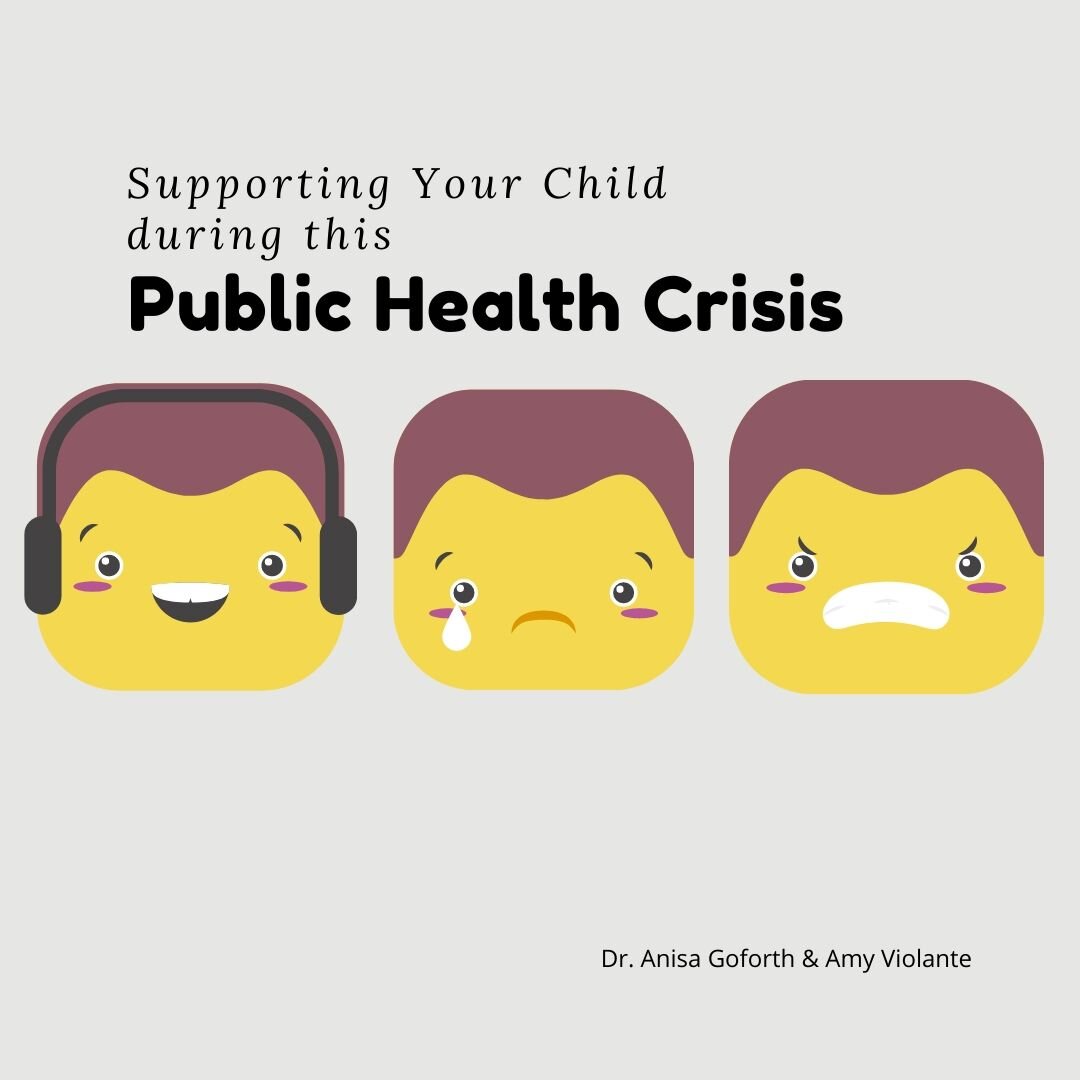Supporting Your Child during this Public Health Crisis
As the coronavirus/COVID-19 public health crisis hits us here in Montana, there is a great deal of uncertainty and anxiety. As parents, we may be particularly concerned about how to support our children as we navigate these incredibly extraordinary circumstances. School has been closed, our routines have been upended, and we may be constantly checking the news so we get as much information as possible. During all of this, we want our children to be happy and healthy.
We provide here some general suggestions to support your children during this public health crisis. This information is based on resources from the National Association of School Psychologists and we have expanded it to provide specific suggestions of what parents can say to their children. Please note, if you notice that your child changes his/her/their behavior and you become concerned, we recommend that you seek support from a mental health provider in the community.
Remain calm and reassuring. Your children are going to look to you and your reactions. If you’re calm and talk to them calmly, they’ll be calm as well. If it’s true, tell your children that they and your family are fine. You can say:
Child: Sarah said that we can’t go to SpectrUM today because people are sick.
Parent: Honey, I know this is a difficult time right now with schools and SpectrUM closed. Your father and I are here to keep you safe and healthy. Our family is going to support each other. Yes, there are some people who are sick from this disease. We are healthy right now, and we will do our best to keep healthy, like washing our hands a lot and not touching our face.
Allow your child to talk about their feelings. Invite your children to talk to you about their feelings. Importantly, the goal of this conversation is not to change their feelings; instead, it is about listening to your children and acknowledging their feelings or thoughts. A useful strategy is just to repeat what they said. For example:
Child: I hate this! This is so unfair! It’s not like we’re going to get sick if we go to school!
Parent: I hear you. You think it’s unfair and you’re really not enjoying being home all day.
You can help reframe their concerns. Here’s an example:
Parent: Tell me how you’re feeling.
Child: I’m feeling really disappointed. I wanted to go to school!
Parent: You’re feeling disappointed. I understand. School is really fun and you can see your friends.
Child: Yeah. I don’t think I’ll ever see my friends again!
Parent: Hmmm. It sounds like you’re worried that you won’t see your friends again. Right now, schools are closed so that we keep our bodies safe and healthy. Germs spread and make people sick, so we are staying away from everyone except our family. We can’t see your friends right now in person, but we can see them using FaceTime! What do you think? Should we call them?
Be honest and accurate. Children may have active imaginations and think of the worst-case scenarios. It may be tempting to calm them down by saying, “Oh honey, nothing is going on!” Children are very aware of what is going on around them, and it is more important to be honest and accurate.
Child: Why is everyone freaking out? I heard Tim at school say that like, people are dying!
Parent: Honey, let me tell you about this disease. It is spread between people who are in close contact with one another. So, if one infected person coughs or sneezes, it spreads to another person. Another way it spreads is that it stays on objects like the playground or on door handles. That’s why we are staying away from other people and the playground.
Child: Isn’t it just like the flu? Is it true that some people die?
Parent: This disease seems to be a bit different. Some people get so sick that their bodies can’t get better, so some people may die. Our job is to keep our bodies healthy. We can help keep other people healthy too by washing our hands for 20 whole seconds. That’s like singing the Happy Birthday song twice!
Make yourself available. Children may seek more comfort and attention from you. Create opportunities to have “special time” with you, where they have your undivided attention. Tell them you love them and give them lots of hugs and kisses.
Parent: We haven’t played soccer together in a while! Would you like to play together tonight, just you and me?
Maintain a normal routine to the extent possible. Children thrive on a regular schedule and routine. Schedules allow for children to know what to expect, and can often reduce feelings of anxiety. With the schools in Montana closed for now, develop a schedule for everyone in the family. If you are home taking care of them, create a schedule that is reasonable that includes both active and quiet time. Also, it may be tempting to let your children go to bed late or wake up later than usual; sleep hygiene is really important to maintain for their physical and mental health.
Parent: With school closed, your dad is going to stay home with you. I can’t stay home because my job is to take care of other people. Let’s sit down and talk about what our days are going to look like together. We’re going to create a schedule together so we all know what to expect.
Here are some suggestions:
Do your kids usually make their beds, brush their teeth and hair, and get dressed before coming downstairs for breakfast before school? Stick to your usual morning routine so your children know what to expect.
The school day includes times for quiet activities, eating, and play. You can incorporate all of these at home. Create a physical schedule for the day so that kids know when to expect lunch, snacks, reading, and outside time. If your kids will be using technology while school is closed, put screen time on the schedule, too.
In addition to organizing the day, provide options for both quiet and active activities. This will come in handy when boredom strikes or creativity is low. See the websites below for inspiration!
Other Resources
If your child is exhibiting symptoms of mental health problems, please seek support from a mental health provider. Here are some other useful links:
Child Mind Institute Talking to Kids About Coronavirus
The Autism Educator Coronavirus Social Narrative


